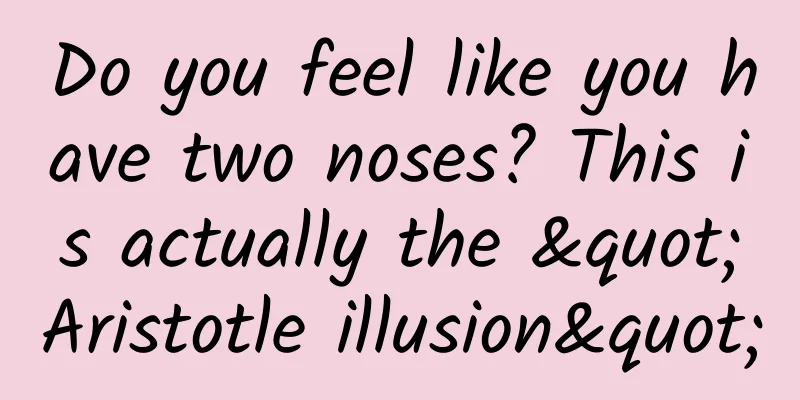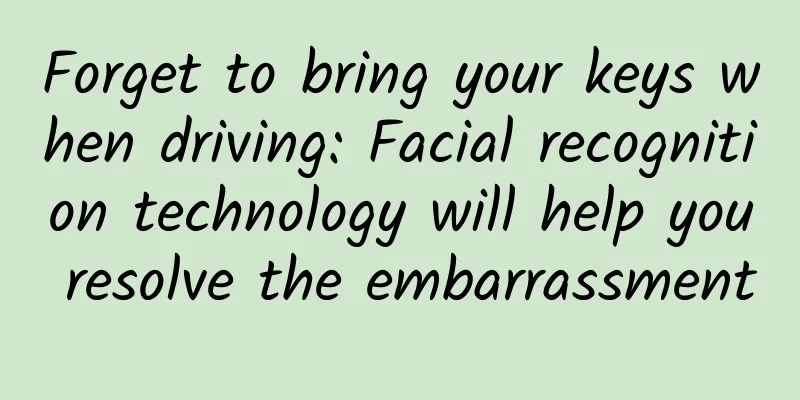Latest research! Staying in bed for 30 minutes can really make you feel better

|
Recently, a hot search on Weibo #Staying in bed for 30 minutes may make you smarter# has caused widespread discussion. Is this true? Let me first state the conclusion: this sentence is not entirely correct and needs to be qualified with a qualifier – in specific circumstances. In fact, the saying that #staying in bed for 30 minutes may make you smarter# comes from a study published by researchers at Stockholm University in Sweden in the Journal of Sleep Research. The study mainly revolves around two groups of experiments: 1. We recruited 1,732 volunteers and interviewed them to find out whether they have the habit of taking a nap after the alarm goes off. We also summarized the characteristics of people who like to take a nap. 2. We found 31 volunteers who habitually stayed in bed for two nights in a sleep laboratory. On one morning, they were allowed to stay in bed for 30 minutes, and on the other morning, they had to get up immediately when the alarm rang. Then we measured their sleep, cognition, cortisol and mood fluctuations. Next, let’s take a look at what these two sets of experiments show. Sleep 30 minutes longer It can avoid "being confused" and "getting grouchy" First of all, staying in bed too long is a common phenomenon. The researchers surveyed 1,732 volunteers and found that 69% of them at least occasionally sleep in a little longer after their alarm goes off, either by using the "sleep for 5 minutes" feature on their alarm clock or by setting multiple alarms to extend their sleep time. Among those who often stay in bed, up to 60% said they feel very sleepy when they first wake up. In addition, for those who have formed the habit of staying in bed, it takes them an average of about 22 minutes to finally get out of bed, and they set an alarm every 8 minutes on average to remind themselves to get up. Some people need multiple alarm clocks. Image source: The author of this article who loves to sleep in Secondly, researchers found that people who have developed the habit of staying in bed will be affected by "sleep inertia", and their cognitive abilities will decline and their mood will be bad when they just wake up. Just like an old computer that boots up slowly, when people are awakened from a deep sleep, it is also particularly difficult for the brain to start up. For a period of time after being awakened, people's thinking is not clear enough, and it takes some time for their calculation speed, episodic memory accuracy, and working memory accuracy to slowly return to normal. It’s not just cognitive abilities that are affected. Sleep inertia can also lead to the so-called “morning grumpiness,” which makes people feel down, unsociable, pessimistic, and tired when they first wake up. However, the adverse effects of “sleep inertia” usually dissipate naturally 40 minutes after waking up. Interestingly, if you choose to sleep in for an extra 30 minutes after your alarm first goes off, you can directly offset sleep inertia and wake up with a sharp mind and a good spirit. From this perspective, instead of going through the slow and difficult process of waking up, it is better to sleep for half an hour longer so that the body and mind can be quickly “turned on” to greet the new day in a better state. Why do young people like to stay in bed more? So, who are more likely to stay in bed? Researchers have found that the tendency to stay in bed may be related to age, sleep pattern and nap duration. Copyright images in the gallery. Reprinting and using them may lead to copyright disputes. In terms of age, those who prefer to "sleep for another five minutes" are about six years younger on average than those who wake up immediately after the alarm goes off. In addition, they are four times more likely to be "night owls" and their naps are slightly shorter, by an average of 13 minutes. In a 2014 study, 42 percent of teens had trouble waking up quickly in the morning and took a while to get out of bed, a rate that decreased with age. Some studies have suggested that young people prefer to stay in bed more because their sleep pattern is the latest at this age. When the tendency to go to bed late conflicts with the need to get up early for school or work, it increases the probability of them not getting enough sleep and being unable to wake up in the morning and wanting to stay in bed. Note: Sleep chronotype, also known as sleep circadian rhythm, refers to the changes in sleep-wake patterns with a cycle of about 24 hours. It can be divided into "morning-type" (early to bed and early to rise) and "evening-type" (evening-type) (late to bed and late to rise). Can sleeping a little longer really effectively make up for the lost sleep? So, when the alarm goes off and we press the “sleep for five more minutes” button, can we really make up for the sleep that follows? Researchers have found that when you stay in bed, you are really catching up on sleep! At the same time, you won't sleep too deeply, ensuring that you feel refreshed when you wake up again. The data from the sleep test showed that although the participants' sleep was disturbed by the alarm clock within half an hour of staying in bed, most of them still slept for about 23 minutes! In addition, since their sleep was mainly concentrated in the N2 sleep stage and almost no deep sleep was involved, they were usually in the light sleep stage when they were awakened, which ensured that they would not feel groggy and tired when they woke up. In other words, the extra 30 minutes you spend in bed are like a nap, with effects similar to a lunch break. Therefore, just like taking a nap too long, staying in bed too long should be moderate. If you stay in bed too long and enter the deep sleep stage, it will not only be difficult to wake up, but even if you wake up, you may feel physically uncomfortable and lack energy. Figure caption: Sleep analysis of a full night's sleep (left) and staying in bed (right). TST: total sleep time; N2: the second stage of rapid eye movement sleep, which is easy to wake up; N3: the third stage of non-rapid eye movement sleep, which belongs to the deep sleep period and is relatively difficult to wake up; REM: rapid eye movement sleep. Source: "Is snoozing losing? Why intermittent morning alarms are used and how they affect sleep, cognition, cortisol, and mood." It should be noted that the sample size of the second experiment in this study is relatively small, so the conclusion can only be used as a reference. If you are interested in this, you may want to compare your own math problem solving speed, word memorization accuracy, and mood and fatigue levels when you just get up in the two situations of staying in bed and not staying in bed~ References [1]Sundelin, T., Landry, S., & Axelsson, J. (2023). Is snoozing losing? Why intermittent morning alarms are used and how they affect sleep, cognition, cortisol, and mood. Journal of Sleep Research, e14054. [2]Amaral, O., Garrido, A., Pereira, C., Veiga, N., Serpa, C., & Sakellarides, C. (2014). Sleep patterns and insomnia among portuguese adolescents: A cross-sectional study. Atención Primaria, 46, 191–194. [3]Fischer, D., Lombardi, DA, Marucci-Wellman, H., & Roenneberg, T. (2017). Chronotypes in the US – Influence of age and sex. PLoS One, 12(6), e0178782. [4]Roepke, SE, & Duffy, JF (2010). Differential impact of chronotype on weekday and weekend sleep timing and duration. Nature and Science of Sleep, 2, 213–220. Author: Hardy, PhD in Neurobiology, Zhejiang University Reviewer: Li Jingjing Professor and Chief Physician, Department of Neurology, Beijing Tiantan Hospital |
<<: Chang'e 6 will head to the moon in early May!
Recommend
How to use growth hacking techniques to attract new customers and boost activation?
I believe that every operations student is famili...
How should bidding promotion be optimized to be effective?
How to optimize Baidu SEM company's bidding p...
Baotou SEO Training: How to quickly improve website inclusion and weight?
How to increase website entry? 1.URL submission T...
14-day labor dispatch finance and taxation advanced training camp
Resource introduction of the 14-day labor dispatch...
What are the functions of the local group buying mini program? How much does it cost to create a group buying mini program?
It has been more than 5 years since the release o...
Robot big data: Shopping mall customer flow increased by 40% during the first long holiday after the epidemic, with Chengdu and Wuhan leading the growth rate
According to data from the Ministry of Commerce, ...
Keep competitive product analysis report!
The body is the capital of revolution. After the ...
A list of the weirdest rhinos that have ever appeared, with Fantastic Beasts and Where to Find Them topping the list
Today, this ancient species of rhino is facing th...
Mobile Internet Advertising Market in 2019!
2019 is already more than halfway through. Lookin...
Did Bai Juyi also suffer from depression? Is it the same as what we are talking about today?
Therefore, the verses written on the river bridge...
Medical beauty industry social media marketing report in the first half of 2021
The rapid development of the internet celebrity e...
LeEco no longer has ambitions under heavy pressure? Liang Jun: Give me three years to achieve 20 billion in TV large-screen operating revenue
Over the years, the outside world has always give...
Baidu SEM Bidder Practical Super God Guide Course
Learn to master: platform operation, account buil...
People's Daily criticizes Mercedes-Benz: Why hurt the Chinese people when trying to make money in the Chinese market?
The rapid growth of China's economy has creat...









